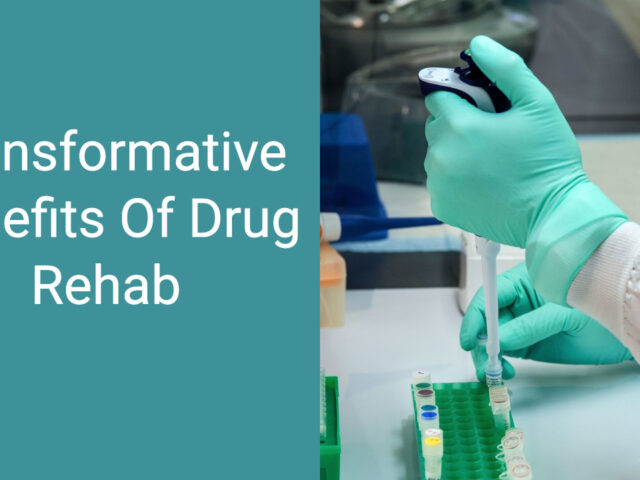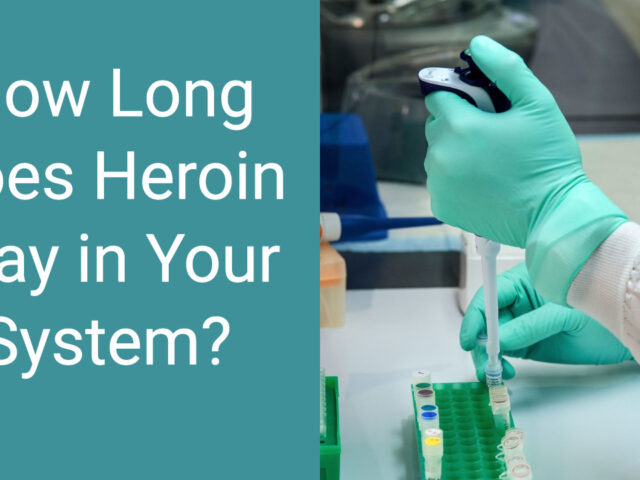Heroin is a highly addictive substance that is derived from the poppy plant. While it was once used as a pain reliever, today it is a commonly abused drug that poses no benefit to those who use it. Those who use heroin often face several challenges because of their use, as well as many consequences that can completely interrupt (and potentially destroy) their lives.
In the United States, 128 people die each day from opioid-related overdose, many of which involve heroin. Research has shown that about 80% of all heroin users first used prescription opioids (such as Vicodin, OxyContin, Percocet) prior to beginning their heroin use. This is extremely common, as heroin produces the same effects as prescription painkillers but is more affordable and easier to access.
Despite shining the spotlight on the severity of heroin and other opioid use, the opioid crisis continues to rage on. The disease of addiction has become so prevalent that one in three Americans report knowing someone who is or who has been addicted to drugs or alcohol. That number is likely higher, however many people are unaware of what constitutes for a substance abuse problem and what does not. When it comes to heroin, there is little gray area, if any at all. That is why it is important to know how to tell if someone is using heroin or not.
What Does Someone High on Heroin Look Like?
It is not always glaringly obvious when someone is high on drugs, especially if that person is frequently using the same substance. A person who is high on heroin displays several depressive symptoms that can easily out them to someone if they know what to look for.
A person who is high on heroin, depending on how much heroin they have consumed, can display the following symptoms:
- Pinpoint pupils
- Slowed physical movement
- Delayed cognitive functioning
- Slowed respiratory rate
- Shallow breathing
- Little or no response to incurring a physical injury
- Dozing off mid-sentence or conversation
- Eyes rolling into back of head
- Slowed heart rate
Heroin is a depressant, meaning that when it is consumed, the body and its functions are inhibited from functioning at their normal pace. This explains why people high on heroin tend to develop sloth-like movements and slowed respiratory and heart rates. These depressive symptoms also cause users to doze off frequently at inappropriate times and struggle to stay focused.
It is more common than not that a person who is using heroin is doing so on a more regular basis as opposed to casually. Heroin is a highly habit-forming drug and can create physical dependence in a person within a matter of days. So, unlike other drugs such as marijuana or alcohol, those who get involved with heroin tend to remain involved with heroin. When that occurs, they no longer only exhibit short-term symptoms of use, but also long-term symptoms of use.
Signs of Heroin Use
As previously mentioned, people do not typically use heroin casually. Instead, someone’s use is more likely to increase over time, eventually leading to a much bigger problem. As the problem grows, the signs of their use become more prominent and easier to spot.
There is a wide array of signs associated with heroin use. Each individual heroin user has their own unique background that influences the effects they experience as a result of their use. In general, however, the most common signs of heroin use include several physical, mental, emotional, and behavioral issues.
Physical signs:
- Fast and/or dramatic weight loss
- Track marks on the arms, legs, or other parts of the body if heroin is intravenously used
- Shortness of breath
- Chronic cough (especially if heroin is being smoked)
- Flushed skin
- Pinpoint pupils
- Itching
- Scabs on the skin from picking or scratching
- Decreased libido
- Constipation
- Kidney or liver problems
- Collapsed veins
- Respiratory infections
- Bloodborne diseases, such as HIV or hepatitis
Mental signs:
- Depression
- Anxiety
- Mood swings
- Euphoria
- Hallucinations
- Delusions
- Paranoia
- Slurred speech
Behavioral signs:
- Agitation
- Irritability
- Cycles of hyperactivity followed by exhaustion
- Changes in sleep patterns (e.g. sleeping too much or not enough)
- Poor personal hygiene practices
- Lack of motivation
- Problems at work, school, and/or home
- Neglect of personal responsibilities
- Social withdrawal
- Possessing drug paraphernalia such as foil papers, spoons, needles, pipes
Being under the influence of heroin can completely change a person — and fast. These are just some of the many signs that someone is abusing heroin. It is also possible that when heroin is being abused, a person can experience consequences as a result of their use, such as:
- Being arrested for things such as driving under the influence, public intoxication, or dealing drugs
- Losing their job, having difficulty finding a job, or unable to maintain a job
- Suffering severed relationships with close friends and family members
- Contracting a bloodborne disease from sharing needles or having unprotected sex
- Developing a physical and/or psychological ailment
The more that a person uses heroin, the more likely they become to develop a dependence to it. Once dependent on heroin, stopping use can be extremely difficult (if not impossible) to accomplish independently. This is arguably one of the greatest consequences of abusing heroin.
What to Do When a Loved One is Using Heroin
If you are concerned that a loved one is using heroin, it is critical that you do not ignore the warning signs. It is undoubtedly difficult to address a topic as serious as this, however it is vital for the wellbeing of your loved one. If someone you love is using heroin, you can:
- Approach them about it in a non-combative way and free of judgment
- Let them know that you are there to support them
- Reach out to local community support groups (such as Nar-Anon) to take care of your own mental wellbeing at this time
- Look up treatment centers that can help and share gathered information with your loved one
- Do not enable your loved one to continue to use
- Seek the support of mutually shared friends and family
These are just some of the ways that you can begin to address the elephant in the room with your loved one. Seeking guidance from a mental health professional or a local support group can help you and your loved one get through this difficult time in your lives.










